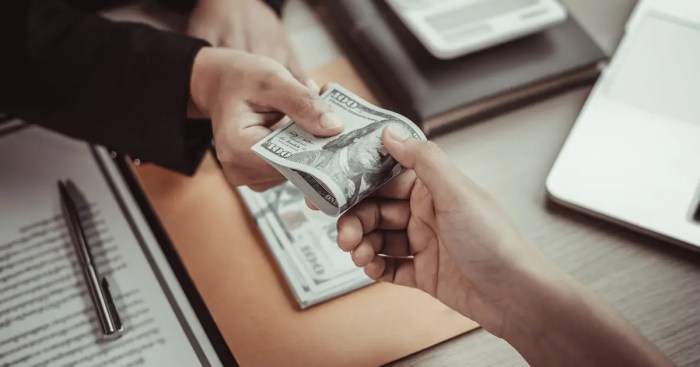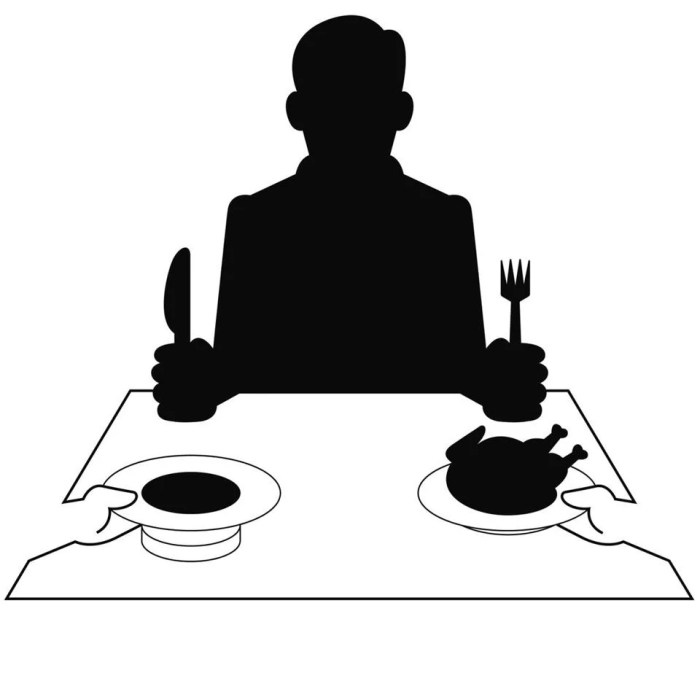Tipping system exacerbates unfair pay at restaurants by kathleen kingsbury – In her compelling article, “Tipping System Exacerbates Unfair Pay at Restaurants,” Kathleen Kingsbury delves into the complex issue of how the tipping system perpetuates unfair compensation practices for restaurant workers. She meticulously examines the historical and cultural significance of tipping, highlighting its detrimental impact on workers’ wages and the industry as a whole.
Kingsbury presents irrefutable data and examples to support her claims, demonstrating the economic disparities that arise from the reliance on tips. She explores the power imbalance between customers and servers, shedding light on the potential for exploitation and discrimination.
The Tipping System: An Overview
The tipping system in restaurants is a practice where customers leave a gratuity to the server as a form of compensation. It originated in the United States in the late 19th century, when low-paid immigrant workers relied on tips to supplement their meager wages.
Over time, tipping became customary and is now an ingrained part of the dining experience in many countries.
Historical Context and Cultural Significance
The tipping system has become deeply ingrained in the restaurant industry, with both customers and servers expecting it as a norm. In some cultures, tipping is seen as a way to show appreciation for good service, while in others, it is considered a way to supplement the server’s income.
Unfair Pay Practices

While the tipping system may be well-intentioned, it can contribute to unfair pay practices for restaurant workers.
Economic Implications
- Tips are not guaranteed, and servers’ income can fluctuate significantly depending on factors such as the day of the week, time of day, and customer demographics.
- Tipping creates a system where servers are dependent on customers’ generosity rather than being paid a fair wage by their employers.
- The reliance on tips can lead to income inequality within the restaurant industry, with servers in high-end establishments earning significantly more than those in casual dining restaurants.
Exploitation of Workers, Tipping system exacerbates unfair pay at restaurants by kathleen kingsbury
The tipping system can also lead to the exploitation of restaurant workers.
Power Imbalance
- Servers are often in a subordinate position to customers, which can create a power imbalance that can lead to harassment, discrimination, and even wage theft.
- Servers may feel pressured to provide exceptional service in order to receive a good tip, which can lead to them working long hours and sacrificing their own well-being.
Potential for Harassment and Discrimination
- Female servers are more likely to be harassed and discriminated against than male servers, as they are often perceived as being more vulnerable and dependent on tips.
- Servers of color may also face discrimination, as they are often stereotyped as being less competent or deserving of tips.
Alternative Compensation Models

There are several alternative compensation models that could be implemented to address the unfair pay practices associated with the tipping system.
Hourly Wages
- Paying servers an hourly wage would ensure that they receive a fair and consistent income, regardless of customer generosity or the restaurant’s business volume.
- This model would eliminate the power imbalance between servers and customers, as servers would no longer be dependent on tips to supplement their income.
Service Charge
- A service charge is a fixed percentage added to the bill that is distributed among the serving staff.
- This model would ensure that servers receive a fair wage, regardless of the customer’s individual tipping habits.
- However, it could also lead to decreased customer satisfaction, as customers may feel that they are being forced to pay a gratuity.
Customer Perception and Behavior

Customer perception and behavior play a significant role in perpetuating the tipping system.
Social and Cultural Factors
- Tipping is deeply ingrained in the social and cultural norms of many societies.
- Customers may feel obligated to tip, even if they are not satisfied with the service, in order to avoid being perceived as cheap or rude.
Educating Customers
Educating customers about the unfair pay practices associated with the tipping system is essential to changing customer behavior.
- Restaurants can display signs or provide information on their menus that explain the issue.
- Servers can also politely inform customers about the situation and encourage them to consider alternative ways to show their appreciation.
Industry and Government Responses

The restaurant industry and governments have taken some steps to address unfair pay in restaurants.
Industry Initiatives
- Some restaurant chains have implemented hourly wages or service charges to eliminate the reliance on tips.
- Industry organizations have also developed training programs and resources to help servers navigate the challenges of the tipping system.
Government Measures
- Some governments have passed laws that set minimum wage requirements for tipped employees.
- Others have implemented policies that require restaurants to provide servers with clear information about their compensation and the tipping system.
Quick FAQs: Tipping System Exacerbates Unfair Pay At Restaurants By Kathleen Kingsbury
How does the tipping system contribute to unfair pay for restaurant workers?
The tipping system allows employers to pay their workers below the minimum wage, with the expectation that tips will make up the difference. However, tips are often inconsistent and unreliable, leading to unpredictable and insufficient income for workers.
What are the alternative compensation models for restaurant workers?
Alternative compensation models include hourly wages, salaries, and profit-sharing. These models provide workers with a more stable and predictable income, reducing their reliance on tips.
What can be done to address unfair pay in the restaurant industry?
Addressing unfair pay in the restaurant industry requires a multifaceted approach. This includes raising the minimum wage, implementing alternative compensation models, and educating customers about the importance of fair wages.